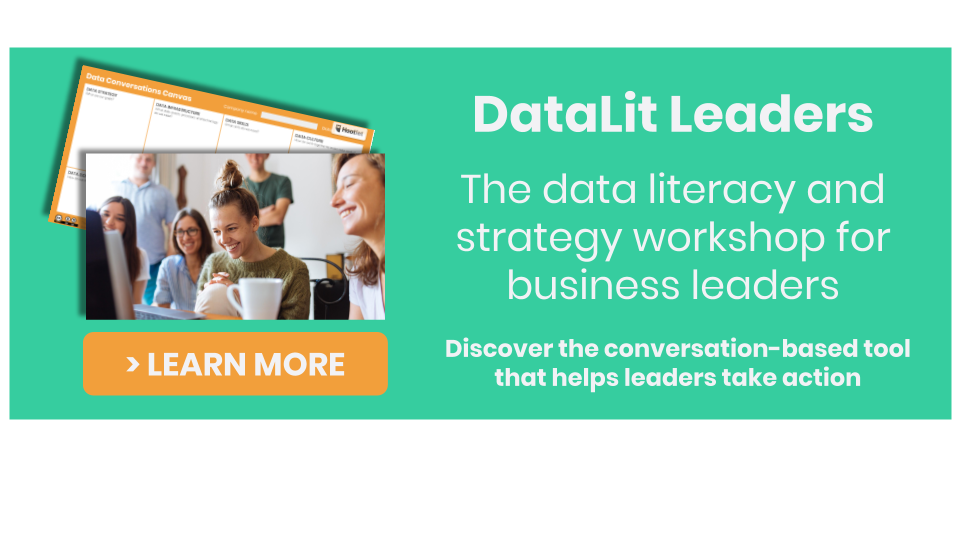Data literacy isn’t about turning everyone into data analysts. It’s about each of us finding our place in a new world of work. It’s about tailoring our literacy to our needs.
Data is changing our world. And it’s not just about flashy AI technologies and apps in the tech sector. Data-powered technologies like automation are expected to change a wide range of jobs – from lawyers to waiters. We each need to know how we might need to adapt. This starts with being data literate. Understanding data in relation to our organisation and our sector, knowing how to interact with data, and analysing what impact data can have.
But finding the right path forward isn’t easy. The world of data is both complex and fast-moving. There’s little consensus about what’s most important. Which is why most data literacy initiatives, particularly those that emerge from the tech sector, are focused on a narrow definition of literacy – using analytics tools to make better decisions. That’s an admirable focus. But it’s not one that’s relevant to everyone.
Like others, at Mission Drive we’ve found that data literacy is context and role-specific which is why, whilst working at the Open Data Insitute AI Author Ellen Broad and I came up with this, high-level definition of data literacy.
“Data literacy is the ability to understand data, how you can interact with it and what impact it can have.”
The Open Data Institute
Little Mission – discover what data literacy means to you
To get started with data literacy you need to unpick each element in the above definition. Here are the steps we suggest taking:
- Assess your current ability to understand data and interact with it. How do you work with data? What data do you use? What tools do you use? What could you do better? Where could better data make a difference? What new concepts and ideas do you need to explore?
- Explore the impact that data is having on you and your organisation. How is data used in your business? In your community and sector, how is data and tech changing things? What are your competitors and start-ups doing?
Write down your answers, discuss them with your team, your peers, your managers.
Data literacy is made to measure

How we define our own level of literacy will depend on our context and needs. And it’s in this subjective, unique view, that data literacy differs from data skills. Data literacy is about what we each need. It’s not a one-size fit’s all uniform that we each need to squeeze into. It’s a status tailored to our individual values, goals and purpose.
Data skills can be clearly defined, measured and developed. Which is why your next little mission needs to be about the steps you take to develop your skills.





